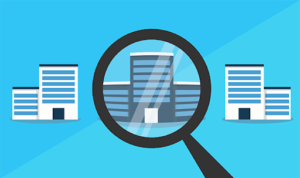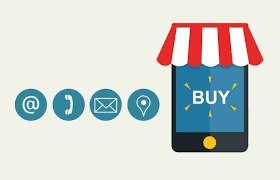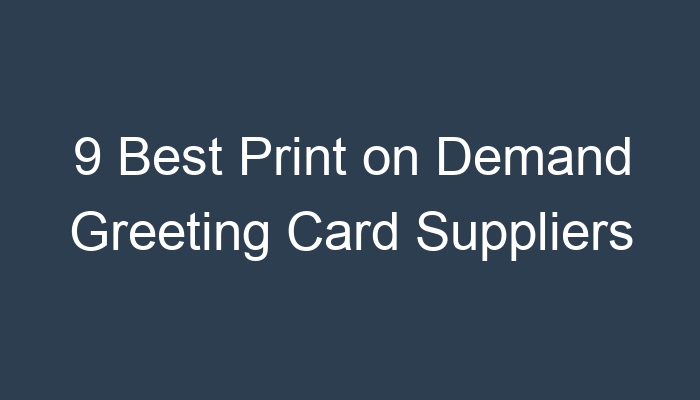6 Basics of How to Scale Your Ecommerce Business the Right Way

Most people are confused about how to scale an ecommerce business! Growing a business typically involves expanding its operations, increasing revenue, and using additional resources. It focuses on increasing the size and scope of the business. Scaling a business, on the other hand, involves achieving sustainable growth while maintaining or improving profitability. It focuses on optimizing processes, leveraging technology, and achieving exponential growth without a proportional increase in resources.
The eCommerce industry has experienced significant growth, with sales projected to reach $4.5 trillion by 2021. To secure a portion of this expanding market, it’s crucial to establish a solid foundation, generate momentum, and be prepared for future challenges. In this article, we will delve into the most effective and efficient strategies for how to scale your ecommerce business, equipping you with the knowledge to thrive in this dynamic industry.
How to Scale an Ecommerce Business
Indeed, understanding how to scale an ecommerce business can give you a competitive advantage. By focusing on driving sales without a significant increase in overhead, you can achieve growth. Start implementing these tips today to elevate your business and propel it to the next level of success. Scaling an ecommerce business needs setting smart goals and developing a comprehensive plan to accomplish them.
6 Basics of How to Scale Your Ecommerce Business the Right Way

Growing your ecommerce business involves maximizing revenue by optimizing existing resources. To achieve this goal, it’s important to implement effective strategies. Read on to discover the right ways to how to scale an ecommerce business and unlock its full potential for growth and success.
1. Step Up Your Inbound Marketing Game
Inbound marketing is a powerful approach to attract customers to your online store. By creating relevant and engaging content and experiences, you can generate scalable revenue for your business. Implementing a comprehensive inbound marketing strategy can help drive growth and success.
2. Befriend Automation
By automating repetitive tasks, you can optimize resources, increase efficiency, and free up time for more strategic activities like creating marketing campaigns and valuable content. Automation allows you to streamline operations and focus on driving growth and expansion.
3. Outsource Where Possible
When it comes to technical tasks like SEO optimization or complex CMS migrations, it’s often beneficial to rely on third-party experts. Outsourcing these tasks to professionals allows you to scale up your business while saving time and ensuring that these critical areas are handled by experienced specialists. This way, you can focus on other aspects of your business that require your attention.
4. Create an Exceptional Customer Service Policy
How to scale an ecommerce business: 6 effective tips
When scaling your business, it’s common to prioritize certain tasks and allocate more time to them, while other tasks may be left untouched or receive less attention.
1. Implement automation
Automation is a powerful tool for optimizing resources and freeing up time to focus on important tasks like developing a content strategy and marketing campaigns. By automating certain processes, you can create a foundation for increasing sales and scaling your business effectively.
2. Offer free shipping
It’s important to be transparent about shipping costs and fees by incorporating that information within the product description. Additionally, offering free shipping can help reduce cart abandonment rates. Equally important is ensuring timely product delivery, as slow delivery is a significant factor leading to cart abandonment for 19% of customers.
3. Create a website fast and navigable
While a well-designed website may not guarantee skyrocketing sales, a poorly designed site can certainly hinder conversions and result in plummeting sales. It’s crucial to ensure that your website is user-friendly, visually appealing, and optimized for a seamless shopping experience to maximize your chances of converting website traffic into actual purchases.
4. Elevate your customer service experience to new heights.
An exceptional customer experience can have a significant impact on your business. It can lead to increased purchases, word-of-mouth recommendations, customer forgiveness, and brand trust. Additionally, don’t overlook the power of creating a referral program. Such programs can attract new customers through personal recommendations, making it one of the most effective marketing tactics that benefits businesses across various industries daily.
5. Communicate value in the product copy
When constructing an online store, it’s essential to effectively communicate the value of your products at every touchpoint. Begin with compelling product descriptions that highlight how your offerings address customers’ needs and solve their problems. By doing so, you can expect to witness an increase in conversions and sales as customers recognize the value your products provide.
6. Get reviews and display them
It’s important to note that many customers rely on reviews when making purchasing decisions. Encourage customers to leave valuable and detailed reviews on platforms like Yelp, as they can influence potential buyers. However, be aware that Yelp may filter and remove reviews that appear fake or unreliable.
How to scale an ecommerce business: 5 Ways
While many ecommerce businesses begin on a small scale, it’s essential to have a forward-thinking mindset and strategic planning. Each business is unique, so the specific steps required to build initial momentum may vary. It’s important to tailor your approach based on your business’s individual needs and circumstances.
1. Evolve your marketing strategy.
Once you reach certain milestones, it’s vital to evaluate your current customer base and ensure that your marketing strategy is effectively targeting that audience. Fine-tuning your marketing approach based on customer insights can lead to enhanced engagement and sales.
Whether you handle order fulfillment internally or utilize a third-party logistics (3PL) provider, it’s crucial to ensure that your strategy is both cost-effective and efficient. If you work with a 3PL partner, schedule regular discussions to address topics like your business’s growth and explore ways they can support you in achieving your goals. Ongoing communication is key to optimizing your order fulfillment process.
3. Consider expanding into a new market.
If you are already partnered with a 3PL, expanding into new markets can be a relatively straightforward process.
4. Upgrade your technology.
Investing in technology that automates your business processes is crucial. This may involve upgrading your platform from SquareSpace to Magento or adopting a new project management app to streamline operations.
5. Keep an eye on your competitors.
A powerful approach to knowing how to scale ecommerce business is to identify and fill a niche that your competitors have overlooked. Analyze your competition to gain insights into their successes and, more importantly, their shortcomings. By studying customer reviews, you can uncover unmet needs and identify gaps in the market that you can address, allowing you to offer unique value and differentiate yourself from competitors.
Where to Start How to scale an ecommerce business

The best way to start is with a firm and strong foundation. Here are some tips to lay a solid foundation for your ecommerce business in its early days:
1. Set goals for 1, 3, 5, and 10 years.
Setting specific goals at different intervals provides a roadmap to guide your decision-making process and ensure that you make choices aligned with the long-term success of your business.
2. Establish a clear framework for measuring your company’s progress.
It is essential to identify your Key Performance Indicators (KPIs) so that you can monitor your business’s progress every month and assess the effectiveness of various growth strategies.
3. Write an effective business plan.
This plan is not only crucial for launching a new business but also for anticipating future challenges and maintaining accountability in your entrepreneurial journey.
4. Run the numbers before you commit.
Develop a cash flow spreadsheet to analyze and forecast your revenue, monthly fixed costs, inventory expenses, and other financial aspects. Running these numbers provides valuable insights into your business’s financial health and helps with informed decision-making.
5. Identify your target audience and build your brand.
Establishing a strong brand identity not only serves as a foundation for your business but also guides future initiatives, including implementing a digital marketing strategy and making expansion decisions.
6. Build a user-friendly website.
Your website serves as both a sales driver and a traffic generation tool. Besides creating sales and landing pages for outbound marketing, it’s crucial to develop content that attracts search engine traffic (inbound marketing). This comprehensive approach maximizes your website’s effectiveness in driving sales and increasing visibility through organic search.
First Steps to Build and Retain Momentum
To learn how to scale an ecommerce business and to achieve long-term growth and scalability, it is essential to initiate specific actions that establish and sustain momentum for your business. Here are 3 things you need to do:
1. Create a Strong Digital Marketing Campaign
- Do some keyword research
- Create an automated email campaign
- Implement a loyalty program
- Optimize your site for mobile devices
- Create content and build authority
- Connect with your target audience
2. Switch to Third-Party Logistics (3PL)
When scaling your business, a crucial decision to make is whether to invest in your own warehouse space or outsource order fulfillment to a third-party logistics (3PL) provider. A 3PL can handle various aspects of the fulfillment process, including inventory storage, order picking and packing, shipment coordination, and returns management. By partnering with a 3PL, you can offload these operational responsibilities and concentrate on other growth-oriented activities. This allows you to allocate resources efficiently and focus on strategies that will drive the expansion of your business.
3. Develop Excellent Customer Service
When it comes to how to scale an ecommerce business, word-of-mouth marketing is incredibly valuable. The ecommerce buying cycle tends to be more extended due to the intangible nature of products and the abundance of choices available. Customers take more time to make buying decisions as they cannot physically see the product. To overcome these challenges, offering exceptional customer service is crucial. By providing excellent customer support, you can build trust, address concerns, and enhance the overall buying experience, leading to positive word-of-mouth referrals and long-term business growth.
How to Scale an ecommerce Business Next Level

To effectively scale your e-commerce business, it is crucial to comprehend how your customers engage with various social media platforms. Understanding their preferences and behavior on these channels will inform your marketing strategies and enable you to reach and engage with your target audience effectively.
1. Optimize your website for SEO.
To start scaling your e-commerce business, conduct thorough research on your niche and identify relevant keywords to target in your content. Investing in search engine optimization (SEO) not only increases visibility but also enhances the user experience, resulting in higher conversion rates for your website.
2. Crafting a well-planned sales funnel.
When scaling your e-commerce business, two primary objectives are attracting new customers and retaining existing ones. The sales funnel typically consists of three stages: awareness, interest, and decision.
- Awareness: Attract potential customers by addressing their pain points and highlighting the value your products or services offer.
- Interest: Engage interested customers through targeted campaigns, personalized messaging, and compelling content that resonates with their needs and preferences.
- Decision: Convert browsers into buyers by optimizing site experiences, simplifying the purchasing process, providing social proof, and leveraging remarketing efforts.
3. Boost traffic with Google Ads.
To scale your traffic and business effectively, it’s crucial to have a robust Google Ads strategy. Prioritize Google Shopping and search campaigns, as they can help attract new customers, and utilize remarketing techniques to reconnect with previous visitors to your online store.
4. Maximize the algorithm.
To improve your website’s ranking on Google, it’s important to focus on conversions. If visitors come to your site through specific keywords but don’t make purchases, the algorithm may not perceive it as relevant. Increase your chances of ranking higher by offering coupon codes, streamlining the checkout process, and implementing strategies that encourage visitors to make purchases, thus demonstrating relevance and boosting conversions.
5. Revisit software.
Continuously reviewing your software infrastructure is crucial. Assess essential areas like customer relationship management (CRM), accounting, and email marketing software. Additionally, invest in inventory management and warehouse management solutions to efficiently handle increased volumes as your business scales.
How to Scale an Ecommerce Business Valuation
- Revenue-Based Valuation: This approach focuses on the revenue generated by the business. Factors such as annual revenue, growth rate, and industry multiples are considered to estimate the value.
- Earnings-Based Valuation: This method evaluates the earnings or profitability of the e-commerce business. Key metrics such as net income, EBITDA (Earnings Before Interest, Taxes, Depreciation, and Amortization), and cash flow are used to calculate the value.
- Market-Based Valuation: This approach compares the e-commerce business to similar businesses that have been recently sold in the market. Comparable sales data and market trends are considered to estimate the value.
- Asset-Based Valuation: This method focuses on the tangible and intangible assets of the e-commerce business. It takes into account the value of inventory, equipment, intellectual property, and goodwill.
How to scale an ecommerce business: 6 effective tips
- What is Ecommerce Business Intelligence: 5 Top Tools for BI
- Wix eCommerce vs Shopify | 8 Top Ecommerce Platforms
- Print-on-Demand Shoes Ecommerce Business: A Step-by-Step Guide
- Selling Print on Demand Blankets: integrate with eCommerce platforms
- How to Buy B2B email lists | 20 Best B2B Mailing Lists
- Best D2C Ecommerce Marketing Techniques Brands
- What are SaaS Companies with b2b SaaS Examples | Best Types
- 5 Best Tips to Choose Ecommerce Business Name Ideas
- What are the Risks of Selling Electronic D2C Products: D2C Ecommerce
-
How to scale an ecommerce business: 6 effective tips





